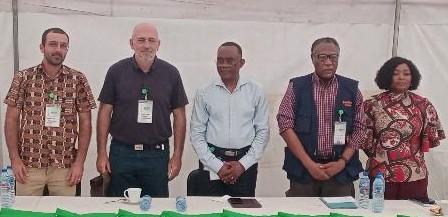
The Managing Director, Presco Plc, Mr Felix Nwabuko, has urged government agencies to support oil palm research to boost export and economic development.
Nwabuko made the call while addressing oil palm stakeholders at Presco’s plantation site at Ologbo, near Benin on the occasion of the “Seed Evidence Day’.
The managing director in a statement on Tuesday said that research was the way to go to sustain investments and development of oil palm production in the country.
Nwabuko said that smallholder and outgrower farmers were very critical to the development of the sector.
He, however, commended the Central Bank of Nigeria for efforts to sustain growth in the sector.
He said that challenges posed by inadequate land for large scale expansion had made collaboration with smallholder farmers imperative.
Also speaking, Edo State Commissioner for Agriculture and Food Security, Mr Stephen Idehenre, said government was working to boost oil palm production in the state.
Idehenre said the state government was collaborating with Presco and other stakeholders to produce quality seedlings for Nigeria and the international market.
On his part, the President, Nigeria Agric Business Group, Mr Emmanel Ojewere, described oil palm as the future of Nigeria and Africa.
Siat Group Research & Development Manager, Mr Reinout Impens, who spoke on the outcome of research conducted with partners, said the development would boost growth and sustain profitability.
Impens said the Siat Group started a 20-year collaboration with CIRAD, PalmElit and INRAB in 2007, aimed at sustaining progress and development in the oil palm sub sector.
He said that the “Genetic Block Project” implemented at Presco saw the establishment of progeny trials covering some 500 hectares.
“This project, developed in Africa and one of the largest of its kind in the world, engages over 120 full time workers to monitor the growth, production, and oil extraction rate components.
“Results indicate that oil yield of over 5t/ha can sustainably be achieved in Africa (against a global average of around 4t/ha and well above the 1t/ha averaged in Nigeria).
“These efforts, by ensuring perpetual progress in genetic potential and regional adaptation, not only provide the Siat Group with guaranties regarding the quality of planting materials used.
“It also safeguard the sustainable growth of the African oil palm industry in general, primarily by increasing yield and thus reducing the need for land conversion or deforestation,” he said. (NAN)



